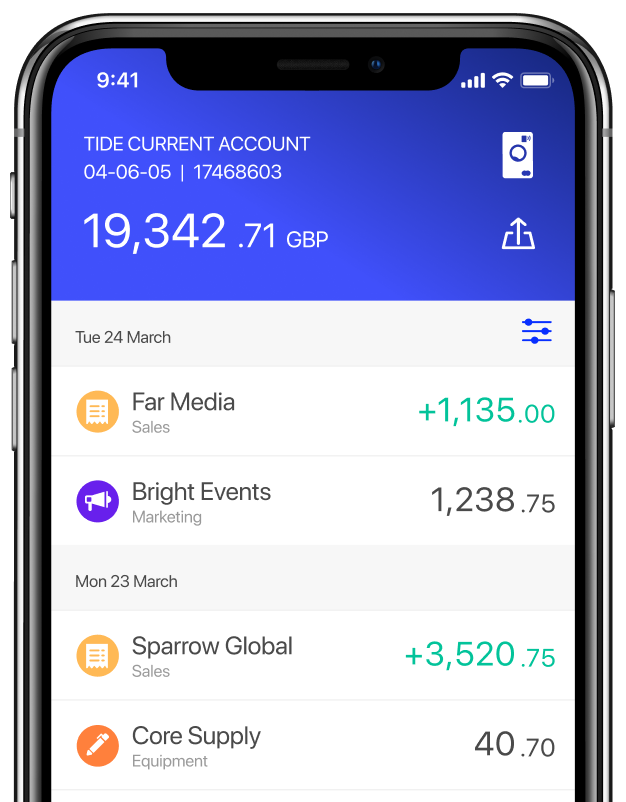
20 business ideas you can get started with in 2024

Running your own business can be incredibly rewarding. But with so many great business ideas to choose from, it can be difficult to know where to start.
In this article, we’ll run through 20 different small business ideas in detail and discuss how to successfully launch your small business, to hopefully give you an idea of what to do.
If you’re not quite ready to start a full business, why not start with a side hustle? Here are what we think are the 30 best side hustles of 2024.
1. Copywriting
If you enjoy writing or editing, there are plenty of ways to turn freelance writing into a small copywriting business. Many companies hire copywriters and contractors on a part-time basis, either for SEO or company branding. This is often a cheaper option for businesses as they don’t need to provide employee benefits to freelancers and can still obtain quality deliverables.
Whether you’re experienced or just starting out, there’s a market for copywriters of all varieties online.
A great place to start freelance writing is with a site like Fiverr. Create several gigs that make a good offer to clients and highlight your skills, expertise and experience. You can also list your services on sites like Upwork and ProBlogger. There is also the option of creating a website yourself with the help of a website builder like WordPress, Wix, or Squarespace and displaying a portfolio. From there, promote yourself on platforms like LinkedIn to generate interest. We recommend trying a mixture of all of these methods, and seeing what works best for you. After all, the more outreach the better.
Copywriting has the potential to scale into an agency, or a full marketing agency, perhaps offering clients other services.
2. Freelance developer
Developers are in high demand, but working as a freelance developer is slightly different to an office environment. Clients don’t necessarily care how long something will take; they care that it will work. This means you must understand how to monetise the value you create.
You can either choose a niche and launch your own business that serves clients in that market or go the route of third-party sites like Toptal.

Toptal connects companies with vetted freelance developers that have gone through a rigorous interview process. The developers that work for Toptal have a variety of skill sets, ranging from web development to web design to mobile app development.
No matter what route you choose, make sure it aligns with your interests. Consider scalability and ideally pick a service in which you can write and then reuse your code.
3. Graphic design
There’s a never-ending need for graphic designers. As the world continues to move online, people need their business assets to be visually appealing, professional and on-brand.
The most popular third-party site for freelance graphic designers is Dribbble. Dribbble is an online marketplace for designers to showcase their work, boost their portfolios and ultimately get hired. It’s essentially a social network for designers that also lists job postings.
It’s also imperative that you use modern software. If you are still using outdated software, it may not be compatible with the platforms that clients are using today. Additionally, it’s not a bad idea to learn several design programs to broaden your skill set. For example, many designers are experienced with Adobe Photoshop. But, today’s clientele is often looking for graphics made in Illustrator. If you know how to use both, you’ll be able to remain competitive.
Top Tip: For both freelance writing and design services, check out our list of 32 proven ways to attract new clients ⚡
4. Gardening or landscaping business
Many people don’t have the time or energy to maintain a garden themselves, but as a lot more people work from home these days, they will want to take pride in their working environment.
That’s where gardeners and landscapers come in. If you enjoy lawn work, getting your hands dirty in fresh soil and working outside, running your own gardening or landscaping business may be the perfect fit.
Before you invest in tools, you could consider investing in your skillset by getting a qualification through the Royal Horticultural Society. This is not a requirement, but may help clients feel more comfortable hiring you. You can also pursue an apprenticeship.
As for equipment, landscaping requires power tools such as blowers, chain saws, pressure washers, etc. Given the sheer size of the equipment, you’ll need a bigger van to get from job to job. If you’re on a tight budget, you can rent equipment instead of buying it.
5. Interior design business
Homes also require maintenance and designing that people don’t have time for. There is a huge demand for interior design, and if you have a portfolio of design work, you could offer your services to the wider public.
Starting from scratch may require decorating and designing your own home, then perhaps moving on to family and friends before you land your first client.
There are many courses you can take in order to hone your skills, and this business is all about making good connections, both with your clients and also with suppliers, such as furniture salesmen and decorators.
6. Photography business
Photography was one of our side hustles, and if you’re starting to gain traction online for your photography skills, you can turn your photography into a full business.
Events, magazines and wedding businesses are in constant need of photography. If you don’t already have expensive equipment, you will most likely need to buy a professional camera if you want to charge high prices.
Photographers also need to be adept at editing their photos. Similar to graphic designers, there are tons of tools out there. Many photographers are skilled in Adobe Photoshop and Lightroom, but it’s worth learning as many programs as you can in case a client has a preference. If you want to bring your editing skills up to par, you can brush up with an online course or certification.
Many photographers book gigs on the weekend, so remain aware of how that will affect your personal life. If you prefer weekends for family time at home, then shooting a wedding on a Saturday may not align with your interests.
7. E-commerce store
E-commerce is skyrocketing. In 2022, e-commerce sales in the UK hit over £100bn and continue to climb. People often go into e-commerce off the back of dropshipping, when they find a product that is a market fit, and they discover a way to create a product of better quality more efficiently.
Make sure you follow the laws dictated by the country you’re operating in. In the UK, you must adhere to the legal rules laid out in the Electronic Commerce Regulations 2002.
If you’re unsure of exactly what you need to do, consult with a lawyer to guarantee your business is above board and compliant with the latest rules and regulations.
Top Tip: Picking the right platform is key to starting your e-commerce business on the right foot. Learn about some of the top viable platforms to choose from in our guide on how to start an e-commerce business ⚡️
8. Consulting business
If you’ve become an established authority in a particular field, it may be worth considering going into consulting. A consultant is an expert in their field and advises others in their area of expertise. They are often an invaluable asset to a business and make a lot of money because of their unique proficiency.
If you have a list of business clients, it’s best to reach out to them and start discussing with them ways in which you could consult. From here, you can then consider setting up your business and attracting new clients.
We advise getting business insurance just in case anything goes wrong, like accidentally advising your client to make a decision that results in a negative economic impact. Public liability insurance is also a good idea if you plan to have meetings at your clients’ offices or vice versa.
9. Affiliate marketing
Affiliate marketing is a way to get paid by other businesses for promoting and selling their products. You earn money every time you bring in a new customer or order.
This business model involves using your online and social platforms to market products to your followers. You can talk about products on your social media, blog, or website and get a commission every time someone clicks through from your platform to the sponsoring business.
Affiliate marketing requires you to have a decent following or good SEO skills before you can start to turn a profit. For the latter, SEO is useful because if you have an affiliate site but lack a strong social presence, you can reach your audience via search instead. Therefore, it’s worth putting in time and planning upfront.
Here are a few simple steps to get you started:
- Choose your niche. Start by finding a field to specialise in. Is there something you’re passionate about and would find it easy to talk about? Is there an ongoing demand for your area of expertise? Choose something you can focus on long-term and that has a promising future.
- Find an affiliate marketing program. These are third-party platforms that help affiliates and brands find each other and work together. Some top programs for beginners include Amazon Associates, Commission Junction (CJ) and ClickBank.
- Promote affiliate links on your channels. Your affiliate program will provide you with links to the products and services you promote, your job is to get them in front of people and persuade them to click.
Affiliate marketing can also go alongside any of the small businesses on our list. For example, if you are running a successful gardening business, you could consider affiliate marketing gardening products, and make extra profits on the side.
10. Personal training
If you love helping people get healthier and feel great, then personal training could be for you.
Personal trainers provide physical and psychological support for people looking to get healthy and stay fit. They get to know your health history and lifestyle factors and create a tailored plan that will help you reach your goals.
To start a personal training business in the UK, you need to register with CIMSPA (Chartered Institute for the Management of Sport and Physical Activity).
You’ll also need public liability insurance as you may be working in clients’ homes. Of course, you should also invest in any essential equipment. After that, you’ll have little ongoing expenses, minus travel costs to and from your appointments.
The best part is that you can have a very diverse clientele. You don’t necessarily need to niche yourself into one target market or another. If you do a good job, you will amass loyal clients that refer you to their friends.
11. Massage therapy
Massage therapists relieve tension, aches and stress. Some people see a massage therapist to relax, while others need help alleviating pain.
It’s a good idea to start with a general massage specialism and then branch out as you grow. Many therapists become specialised in more than one area to serve a broader client base.
There is currently no statutory regulation in the massage industry and you don’t need a certification to become a massage therapist in the UK. However, some clients prefer if you have an accreditation. As massage is a highly personal profession, it may be worth your while.
12. Yoga instructing
People all over the world participate in group or solo yoga practices to centre their bodies and minds.
There are no formal requirements to become a yoga instructor in the UK. However, most employers and clients will require some sort of training or certification. You can take courses through a college or one of the organisations dedicated to self-regulating the industry, like The British Wheel of Yoga.
The courses are not location specific, so you can complete training in your home country or internationally per your preference. You can also complete the course in one fell swoop, which usually takes about a month, or break it up over time.
Generally, the training costs between £1,000 and £3,000, depending on the certification level you choose.
Starting a yoga business may be competitive, but the market is there. If you create your own brand and curate interesting and helpful content, you can formulate a successful in-person and online yoga business.
13. Personal chef
Do people talk about your dinner parties year-round? Perhaps it’s time to make some money from your cooking.
Personal chefs prepare meals for families, parties, corporate events, special events, and more. They often specialise in a food group, whether it be a cuisine type or speciality diet, so consider choosing a niche.
Starting a business as a personal chef is a low-cost endeavour. All you need are kitchen supplies, which you most likely already have. Anything else that you buy for the client, like food or cutlery for events, is often reimbursed.
You should, however, consider investing in public liability insurance. This will help protect you in the case of a compensation claim brought forth for a food safety mishap or equipment damage. Additionally, you, and anyone who works with you, must have proper training in food hygiene and comply with the rules and guidelines under the Food Standards Agency.
It’s best practice to build a website to advertise your services. However, most personal chefs get their clients from word-of-mouth recommendations.
14. Food trucks & food stands
One of the hottest trends in food is street food, and food trucks are a way to become part of this booming market.
While the overhead costs might be higher than being a personal chef, a food truck can be an excellent source of income, particularly if you establish yourself at festivals or tourist attractions. Often, a food truck is an extension of your personal chef services.
Start by establishing your cuisine, then work on branding and pricing. Food trucks can be more expensive than personal chef services, so make sure that you do sufficient market research beforehand.
15. Opening a restaurant
Opening a restaurant is the final stage of turning your food into a business. This can be one of the hardest steps, and is a risk for some, but if successful, potentially a multi-million pound business.
Begin as a single location, and then if profits warrant it, expand your business to other branches.
Restaurants can be an expensive business to run, so you may want to consider some in-depth market research, and perhaps consider running a food stall or food truck as an experiment before moving into the restaurant business.
All our members have access to Business Loans, so if you’re looking for some extra capital to get things moving, we can help you.
16. Travel planning
If you love to travel, you may enjoy helping others have memorable experiences.
According to the UNWTO, 117 million people travelled internationally from January to March of 2022.
Setting up a travel planning business has relatively low startup costs. You don’t need too many tools, as you will be selling your skills and reliability above all.
You can either set up an in-person travel planning business or run consultations online or over the phone. If you are working for yourself out of your home, you’ll most likely operate online.
Pick a niche and decide what kind of travel you’re interested in. Again, you can choose between corporate and personal. If you’re working for yourself, it may be worth teaming up with an agency that can provide you with clients for a kickback.
If you want to start alone and build from the ground up, you’ll need to find a way to stand out from the crowd. This means conducting thorough market research to determine what your community needs.
17. Life coaching
Similar to consulting, if you have significant life experience, and experience with working through difficult situations, then becoming a life coach might be an option for you. A background in HR and business is often a good foundation.
You don’t need a degree to be a life coach in the UK as it’s not a regulated service. However, your clients will most likely feel more comfortable if you have accreditation to reflect your training.
There are several accrediting bodies in the UK. One of the most popular is the Association for Coaching (AC).
Make sure that your offering is something you can expertly deliver. Then, define your package and promote yourself. Life coaching works well as an in-person business, via video conferencing, or both.
18. Real estate & property management
Real estate is one of the most profitable businesses, and doesn’t always need huge amounts of capital to enter. Several small businesses can run around the management and repair of properties, such as rent collection, cleaning services and fixing broken items.
This could either be residential real estate, which would involve buying and selling homes. You could also be involved in the viewing process.
You could also enter the commercial real estate business, and lease office space to companies and small businesses. Commercial real estate tends to yield higher income, but cost a lot more as the buildings are larger and more advanced.
Either one of these could also factor in real estate development, which would involve buying up old buildings and either upgrading or converting them to create attractive and profitable properties.
19. Create online courses
Many online entrepreneurs make money from selling online courses that are either an extension of their personal brand or a service provided to businesses to deliver a particular result.
Online courses can be incredibly profitable, as once they’re set up, they require no maintenance, and all you need to do is promote them. If you’ve built a strong online audience, then starting an online course business is much easier, as your followers will be looking for ways to get extra exposure to your content.
If you have achieved a particular result in business using a specific system or framework, this can also be a good basis for an online course.
20. Print-on-demand service
Print-on-demand services are increasingly popular, as people want to create their own designs, not only for their own enjoyment, but also to resell via their own business.
With online entrepreneurship rapidly increasing, becoming the middle man in an e-commerce business could be an incredibly profitable business.
You can print anything from T-shirts, mugs, hats, tote bags, badges and more – essentially anything flat enough to print a design that can be produced cheaply.
You can either print the designs yourself, or outsource the printing work to a professional printer.
Wrapping up
Starting a business can be an incredibly exciting opportunity once you’ve picked an idea.
Make sure that you avoid rushing to market with an idea that may not work. Assess the market and take your time to identify a need, ideate a solution to a common problem and transfer your passion into a profit.
Knowing how to start a business is equally as important as picking the right business, so make sure you do sufficient research and financial planning beforehand.
Once you’ve identified your business, Tide can help you every step of the way. You can register a company for only £14.99, which includes our business bank account.
Don’t forget to look after your financial, mental and physical health. Stay social, active and engaged. Most importantly, have fun and enjoy the ride.
Photo by Vlada Karpovich, published on Pexels




